This article has multiple issues. Please help improve it or discuss these issues on the talk page . (Learn how and when to remove these messages)
|

Peter Seidel (born December 2, 1926) is an American architect-planner turned writer. [1]
This article has multiple issues. Please help improve it or discuss these issues on the talk page . (Learn how and when to remove these messages)
|

Peter Seidel (born December 2, 1926) is an American architect-planner turned writer. [1]
Seidel was born in Milwaukee, Wisconsin on December 2, 1926. He moved from Ann Arbor, Michigan to Ohio to plan a new town outside of Cincinnati, Ohio. His plans for the new town never came to fruition, but he instead built an eco-community in Clermont County on 188 acres of land. [2] [3] Seidel's goal for this was a place where residents could get a feel of nature. [4] [5]
Seidel lives in Northside, Cincinnati.
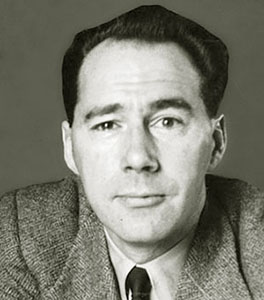
John Wyndham Parkes Lucas Beynon Harris was an English science fiction writer best known for his works published under the pen name John Wyndham, although he also used other combinations of his names, such as John Beynon and Lucas Parkes. Some of his works were set in post-apocalyptic landscapes. His best known works include The Day of the Triffids (1951), filmed in 1962, and The Midwich Cuckoos (1957), which was filmed in 1960 as Village of the Damned, in 1995 under the same title, and again in 2022 in Sky Max under its original title.
Utopian and dystopian fiction are subgenres of science fiction that explore social and political structures. Utopian fiction portrays a setting that agrees with the author's ethos, having various attributes of another reality intended to appeal to readers. Dystopian fiction offers the opposite: the portrayal of a setting that completely disagrees with the author's ethos. Some novels combine both genres, often as a metaphor for the different directions humanity can take depending on its choices, ending up with one of two possible futures. Both utopias and dystopias are commonly found in science fiction and other types of speculative fiction.

The Club of Rome is a nonprofit, informal organization of intellectuals and business leaders whose goal is a critical discussion of pressing global issues. The Club of Rome was founded in 1968 at Accademia dei Lincei in Rome, Italy. It consists of one hundred full members selected from current and former heads of state and government, UN administrators, high-level politicians and government officials, diplomats, scientists, economists, and business leaders from around the globe. It stimulated considerable public attention in 1972 with the first report to the Club of Rome, The Limits to Growth. Since 1 July 2008, the organization has been based in Winterthur, Switzerland.
Scenario planning, scenario thinking, scenario analysis, scenario prediction and the scenario method all describe a strategic planning method that some organizations use to make flexible long-term plans. It is in large part an adaptation and generalization of classic methods used by military intelligence.
William Harold Greider was an American journalist and author who wrote primarily about economics.
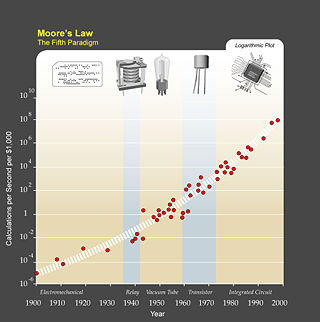
Futures studies, futures research, futurism research, futurism, or futurology is the systematic, interdisciplinary and holistic study of social/technological advancement, and other environmental trends; often for the purpose of exploring how people will live and work in the future. Predictive techniques, such as forecasting, can be applied, but contemporary futures studies scholars emphasize the importance of systematically exploring alternatives. In general, it can be considered as a branch of the social sciences and an extension to the field of history. Futures studies seeks to understand what is likely to continue and what could plausibly change. Part of the discipline thus seeks a systematic and pattern-based understanding of past and present, and to explore the possibility of future events and trends.
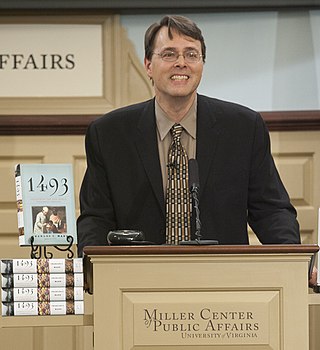
Charles C. Mann is an American journalist and author, specializing in scientific topics. In 2006 his book 1491: New Revelations of the Americas Before Columbus won the National Academies Communication Award for best book of the year. He is the co-author of four books, and contributing editor for Science, The Atlantic Monthly, and Wired.
Post-capitalism is in part a hypothetical state in which the economic systems of the world can no longer be described as forms of capitalism. Various individuals and political ideologies have speculated on what would define such a world. According to classical Marxist and social evolutionary theories, post-capitalist societies may come about as a result of spontaneous evolution as capitalism becomes obsolete. Others propose models to intentionally replace capitalism, most notably socialism, communism, anarchism, nationalism and degrowth.
Joe Nickell is an American skeptic and investigator of the paranormal.
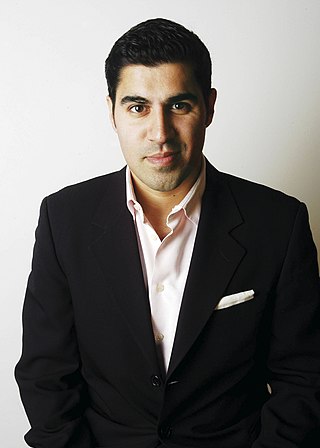
Parag Khanna is an Indian-born strategy advisor and author. He is Founder & CEO of AlphaGeo, an AI based geospatial predictive analytics platform.

A dystopia, also called a cacotopia or anti-utopia, is a community or society that is extremely bad or frightening. It is often treated as an antonym of utopia, a term that was coined by Sir Thomas More and figures as the title of his best known work, published in 1516, which created a blueprint for an ideal society with minimal crime, violence, and poverty. The relationship between utopia and dystopia is in actuality, not one of simple opposition, as many dystopias claim to be utopias and vice versa.

Camp Quest is an organisation providing humanist residential summer camps for children in the United States, the United Kingdom, Switzerland and Norway. It was first held in 1996 in Kentucky to provide an alternative to the traditional religiously affiliated summer camps, for the children of nontheistic, humanist or freethinking families as well as children from a religious upbringing. Camp Quest currently consists of 13 affiliated camp groups and its current executive director is Kim Newton.

Climate fiction is literature that deals with climate change. Generally speculative in nature but inspired by climate science, works of climate fiction may take place in the world as we know it, in the near future, or in fictional worlds experiencing climate change. The genre frequently includes science fiction and dystopian or utopian themes, imagining the potential futures based on how humanity responds to the impacts of climate change. Climate fiction typically involves anthropogenic climate change and other environmental issues as opposed to weather and disaster more generally. Technologies such as climate engineering or climate adaptation practices often feature prominently in works exploring their impacts on society.
Kate Brown is a Professor of Science, Technology and Society at Massachusetts Institute of Technology. She is the author of Manual for Survival: A Chernobyl Guide to the Future (2019), Dispatches from Dystopia (2015), Plutopia (2013), and A Biography of No Place (2004). She was a member of the faculty at the University of Maryland, Baltimore County (UMBC) from 2000 to 2018. She is the founding consulting editor of History Unclassified in the American Historical Review.

Costume Quest 2 is a 2014 role-playing video game developed by Double Fine Productions and published by Midnight City. The sequel to Costume Quest (2010), Costume Quest 2 allows players to assume the identity of one of the two twin siblings, Wren or Reynold. Together with their friends, the group travels through the various in-game environments collecting candy and various costumes, in an attempt to thwart the plans of Dr. Orel White, who wishes to see Halloween banished forever. The game has an improved battle system and a time travel-based plotline. The downloadable-only title has been released on Linux, OS X, Windows, PlayStation 3, PlayStation 4, Wii U, Xbox 360, and Xbox One.

Climate change in Ohio is of concern due to its impacts on the environment, people, and economy of Ohio. The annual mean temperature in Ohio has increased by about 1.2 °F (0.67 °C) since 1895. According to the United States Environmental Protection Agency, "All regions of Ohio have warmed."
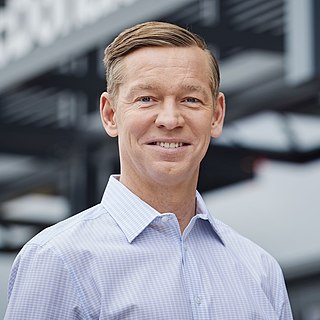
Christopher John Kempczinski is an American business executive, and the president, chairman and chief executive officer (CEO) of McDonald's Corporation.
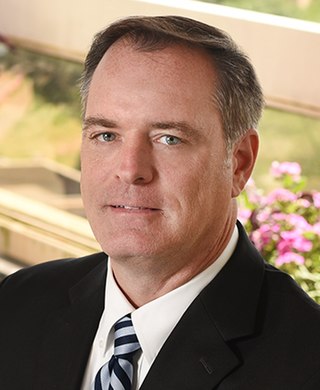
Robert Bilott is an American environmental attorney from Cincinnati, Ohio. Bilott is known for the lawsuits against DuPont on behalf of plaintiffs injured by chemical waste dumped in rural communities in West Virginia. Bilott has spent more than twenty years litigating hazardous dumping of the chemicals perfluorooctanoic acid (PFOA) and perfluorooctanesulfonic acid (PFOS). They were unregulated as industry had never publicly identified them as having known hazardous effects, despite internal studies showing these results.

Shafiqul Islam is a Bangladeshi American researcher, academic and author. He is a Professor of Civil and Environmental Engineering and Professor of Water Diplomacy at Tufts University. He serves as the Director of Water Diplomacy. He is also the Founding Editor of the Water Diplomacy Series.